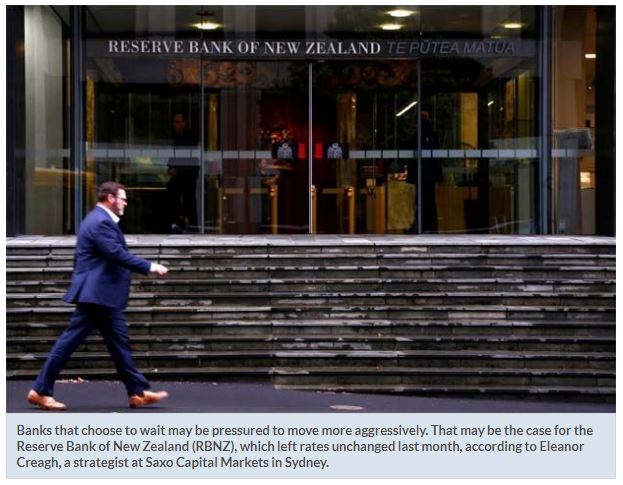Emergency rate cuts loom for Asia as Covid-19 slams economies
SINGAPORE: Central bankers across Asia-Pacific must consider whether they can afford to wait until their next scheduled policy meetings or respond sooner to mounting global risks from the Covid-19 coronavirus outbreak and oil-price plunge.
The Federal Reserve set the pace with an emergency 50 basis-point interest rate cut last week. None of Asia’s central banks immediately followed the Fed, but some have added liquidity. The Bank of England reduced its key rate in an unscheduled move on Wednesday and announced measures to keep credit flowing.
With policy meetings still some weeks away for India, South Korea and Malaysia, analysts – commenting before the Bank of England action – saw those countries as being prime candidates to deliver off-schedule rate decisions. Much will depend on whether global markets rally and credit conditions ease, which would take the pressure off central banks to move aggressively.
“There is a strong impetus to piggy-back on the Fed to ease in Asia, ” said Vishnu Varathan, head of economics and strategy at Mizuho Bank Ltd. Softer oil prices and demand-shock pressures could precipitate intra-meeting action, he said.
The Asia calendar looks quiet up until the Fed’s March 18 rate decision in Washington. Hours later, policymakers in Japan, Indonesia and the Philippines are scheduled to announce their rate decisions, with Thailand and New Zealand following on March 25.
In China and Vietnam, where central banks don’t follow a schedule of publicly announced meetings, a move can come at any time.
Thai central bankers signalled on Monday they’ll wait to adjust policy until their regular meeting, as they examine developments in oil and global markets. The Bank of Thailand cut its benchmark interest rate to a record low on Feb 5 amid worries about coronavirus, while also citing the need for liquidity injections and debt restructuring.
Banks that choose to wait may be pressured to move more aggressively. That may be the case for the Reserve Bank of New Zealand (RBNZ), which left rates unchanged last month, according to Eleanor Creagh, a strategist at Saxo Capital Markets in Sydney.
Having already surprised with a half-point rate cut in August “and with headwinds for the New Zealand economy mounting, taking international policy moves into account along with declining inflation and growth expectations, we expect the RBNZ to cut the official cash rate by 50 basis points on March 25, ” she said. — Bloomberg


 English
English




